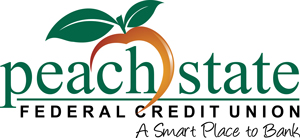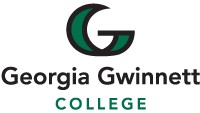The Gwinnett Board of Commissioners have adopted the same general fund millage rate as last year, 6.95 mills. Prior to the vote, the Board held three public hearings and accepted comments through the County’s website.
Property taxes are based on millage rates set by county government, the schools, and cities. One mill equals a dollar tax per thousand dollars of assessed property value.
The 2022 total property tax millage rate for property owners in unincorporated Gwinnett County will be 14.71. The millage rates for special service districts and countywide levies for recreation and economic development also remain unchanged from last year. Millage rates for service districts in Gwinnett are based on property location and county services provided, such as police, fire and emergency medical services, and development and code enforcement. Details on the 2022 millage rates and additional information about how property taxes are calculated are available online at www.gwinnett county.com.
The Gwinnett County Tax Assessor calculates the total value of all taxable property in the county, called the tax digest, by conducting annual updates of residential and commercial property values.
Tuesday’s action paved the way for the Tax Commissioner’s Office to mail property tax bills in September. Payments will be due in November. Property owners or mortgage lenders can make payments by mail, online, in person, or by using one of the special drop boxes located at tax and tag offices across the county.
$330,000 gift from Peach State boosts Hooper Renwick
Renovation of the former Hooper Renwick School got a boost this week when Peach State Federal Credit Union C.A.R.E.S. Foundation announced a $330,000 pledge over the next 10 years to the Hooper Renwick Memorial Campaign of the Gwinnett County Public Library Foundation. The pledge will support the conversion of the existing Hooper Renwick building into a one-of-a-kind 25,000-square-foot themed library paying homage to the African American community of Gwinnett County.
 The Gwinnett County Public Library and its Foundation is working with the City of Lawrenceville, with Gwinnett County, and other organizations to turn the former Hooper Renwick school, one that was segregated for teaching of Black children, into the first themed library in the Southeast. With Gwinnett County being one of the most diverse counties in the United States, the Gwinnett County Public Library Foundation is working to highlight the history of this previous time in the county’s history.
The Gwinnett County Public Library and its Foundation is working with the City of Lawrenceville, with Gwinnett County, and other organizations to turn the former Hooper Renwick school, one that was segregated for teaching of Black children, into the first themed library in the Southeast. With Gwinnett County being one of the most diverse counties in the United States, the Gwinnett County Public Library Foundation is working to highlight the history of this previous time in the county’s history.
Jason DiFranco, director of development and community relationships at Gwinnett County Public Library, says: “We are grateful for the partnership with Peach State Federal Credit Union, and also the C.A.R.E.S. Foundation, in recognizing the part of history that Hooper Renwick played in our county. We also shows their commitment to increasing the understanding and empathy for all residents in Gwinnett County with the opportunity to further community-wide racial healing.”
Peach State CEO Marshall Boutwell says: “The Hooper Renwick building will always be an important part of Peach State’s history. In September, 1973, after our beginnings nearly 60 years ago, we operated out of a cardboard box before moving to the space at Central Gwinnett High School, we were given our first formal office space inside the service center. We are grateful for their generosity and support all those years ago. This donation on behalf of the C.A.R.E.S. Foundation is an expression of our gratitude to a community that believed in what our founders were trying to build so much that they offered us space in which we could grow and flourish.”
Today, Peach State has expanded to 24 locations throughout Georgia and South Carolina, and has grown to $832 million in assets, serving more than 75,000 members.
County seeking input of survey about public transit
Gwinnett County is reimagining the future of public transit with its Transit Development Plan and is seeking input through a short online survey.
In recent years, Gwinnett County Transit has boarded a million customers, enabling travel across the county and metro Atlanta through its local, commuter and paratransit service routes. The plan will evaluate both current and future transit needs that also consists of transit services provided by regional partners like the Atlanta-Region Transit Link Authority Xpress and more.
The survey will remain open until August 15 at GwinnettCounty.com/TDPSurvey and is accessible in multiple languages.
Georgia Gwinnett’s new internship program now underway
Non-profit organizations are key to the economic vitality, stability and health of a community. A new Georgia Gwinnett College (GGC) initiative will pair students with area nonprofits to gain insight, build interest and enhance their options to enter nonprofit careers.
 GGC’s Nonprofit Internship Program will offer juniors and seniors semester-long paid internship opportunities in Gwinnett County and the greater Atlanta area. Students who meet program qualifications will work up to 25 hours a week and will be paid up to $20 an hour, which officials say will spur interest, provide invaluable experiences, and contribute to their financial stability.
GGC’s Nonprofit Internship Program will offer juniors and seniors semester-long paid internship opportunities in Gwinnett County and the greater Atlanta area. Students who meet program qualifications will work up to 25 hours a week and will be paid up to $20 an hour, which officials say will spur interest, provide invaluable experiences, and contribute to their financial stability.
GGC president, Dr. Jann L. Joseph says: “Internships are valuable, high-impact, learning opportunities for our students. Our students want to make a meaningful impact and this program will allow them to use the skills they learned in the classroom to succeed in nonprofit organizations and give back to their communities.”
In collaboration with the Community Foundation for Northeast Georgia, a multiple donor fund was created to support the pilot program. The fund includes a grant by the Community Foundation and additional donors totaling $210,000.
Jackson EMC accepting application for Bright Ideas grants
Jackson EMC is accepting applications for its Bright Ideas grants program, which funds creative and innovative class projects developed by state-certified educators in public middle schools in Jackson EMC’s service area.
 Educators can earn up to $2,000 for class projects. Projects must involve students directly, provide a fresh, creative learning experience through innovative teaching methods, provide ongoing benefits to students, and create opportunities for teamwork.
Educators can earn up to $2,000 for class projects. Projects must involve students directly, provide a fresh, creative learning experience through innovative teaching methods, provide ongoing benefits to students, and create opportunities for teamwork.
All 2022 applications must be completed online and received by Jackson EMC by midnight on Tuesday, Sept. 6 for consideration. For a complete list of criteria and to apply for a Bright Ideas grant, visit jacksonemc.com/brightideas.
Grant applications will be judged by an independent panel of educators and administrators. Grant recipients will be notified and awarded funds in late October and November 2022. Grant funds must be used in the 2022-2023 school year, and grant awardees must submit a grant report at the end of the school year.
- Have a comment? Send to: elliott@brack.net










Follow Us